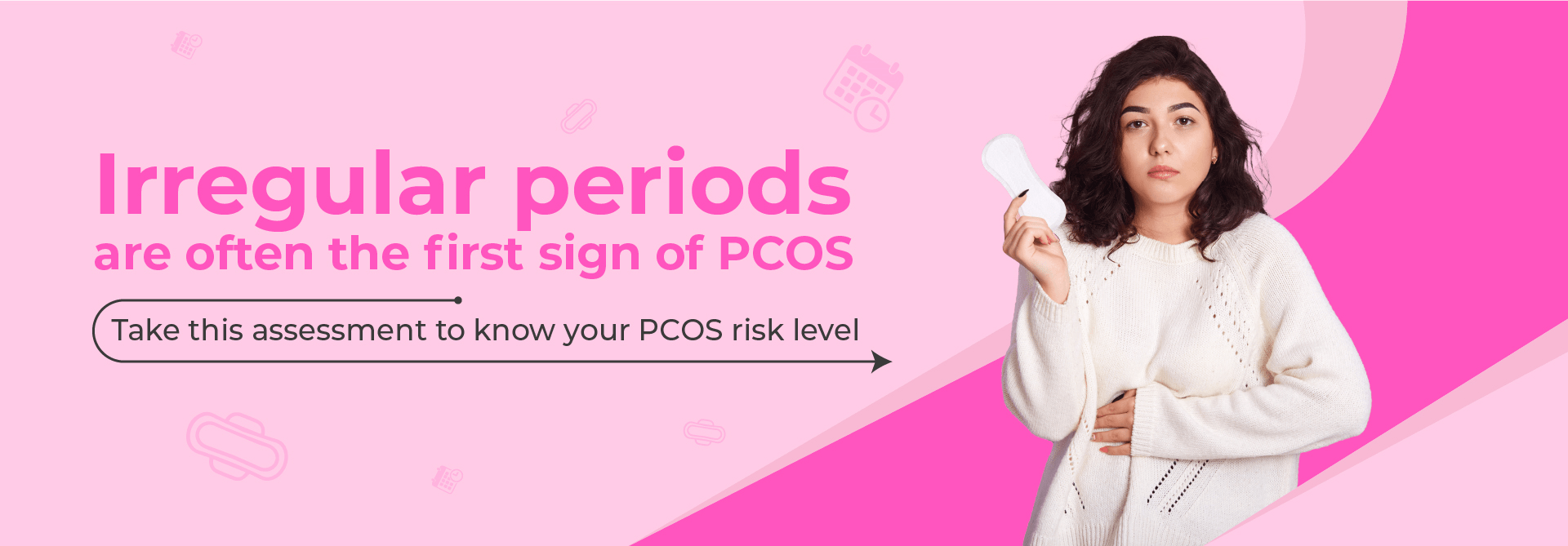How Wrong Food Choices Could Be Making Your Period Worse?
8 months ago
4 minute read.

Menstruation is a natural process, but for many, it brings discomfort in the form of cramps, bloating, mood swings, fatigue, and digestive issues. While hormonal changes play a significant role, your diet can either alleviate or worsen your symptoms. If you often find your periods unbearable, your food choices might be to blame. Let's dive deeper into how certain foods can intensify menstrual discomfort and what you should be eating instead.
How Your Diet Affects Your Period?
Food is fuel for your body, and during menstruation, your body undergoes hormonal fluctuations that can impact digestion, blood sugar levels, and inflammation. Certain foods can trigger water retention, bloating, and even more severe cramps, while others can help stabilize hormones and ease discomfort. Knowing what to eat and what to avoid is key to having a smoother period.

Foods That Can Make Your Period Worse
1. Processed and Junk Foods
Cravings for chips, burgers, and sugary treats are common during periods, but these processed foods are high in salt, unhealthy fats, and artificial additives. They contribute to bloating, inflammation, and water retention, making cramps more painful. Additionally, the excess sodium can make you feel sluggish and irritable.
2. Excessive Caffeine
Your morning cup of coffee might feel like a necessity, but too much caffeine can worsen anxiety, disrupt sleep, and even increase period pain by constricting blood vessels. Caffeine can also dehydrate the body, intensifying cramps and headaches. Instead of reaching for another cup of coffee, try herbal tea or warm lemon water.
3. Sugary Foods and Drinks
Refined sugars in sodas, candies, and baked goods cause a spike in blood sugar levels, leading to energy crashes and mood swings. Excess sugar also increases inflammation and bloating, making period discomfort worse. While it's okay to satisfy a craving, opt for natural sweeteners like honey or snack on fruits instead of refined sugar-laden products.
4. Salty and Fried Foods
High sodium intake causes water retention and bloating, making you feel sluggish and uncomfortable. Fried foods, loaded with unhealthy trans fats, can increase inflammation, leading to more painful cramps. Instead of reaching for fries or chips, opt for baked or air-fried alternatives. [Craving Salt Before Period: What Does It Mean?]
5. Red Meat
Red meat contains prostaglandins, which help the uterus contract to shed its lining. However, excessive prostaglandins can lead to stronger cramps. Limiting red meat and opting for leaner protein sources like chicken, fish, or plant-based proteins can help ease menstrual pain.
6. Alcohol
Alcohol can disrupt your hormonal balance, leading to mood swings and dehydration. It may also increase bloating and make cramps more severe. If you're looking to relax, swap out alcohol for herbal tea or infused water with fresh fruits.

Foods That Help Ease Period Symptoms
1. Leafy Green Vegetables
Spinach, kale, and other greens are rich in iron and magnesium, which help reduce fatigue and muscle cramps. Iron deficiency is common during menstruation due to blood loss, so incorporating iron-rich foods can help replenish lost nutrients.
2. Fruits
Bananas, oranges, and berries are excellent sources of vitamins, minerals, and antioxidants. They help regulate mood, reduce bloating, and improve digestion. Bananas, in particular, are rich in vitamin B6 and potassium, which can alleviate cramps and bloating.
3. Whole Grains
Oats, brown rice, and quinoa provide steady energy and fiber to prevent bloating and regulate digestion. Whole grains help stabilize blood sugar levels, preventing the energy crashes that can make you feel sluggish and moody.
4. Nuts and Seeds
Almonds, walnuts, flaxseeds, and chia seeds are rich in omega-3 fatty acids, which have anti-inflammatory properties that ease cramps and mood swings. They also provide a healthy dose of magnesium, which helps relax muscles and reduce tension. [Should You Have Chia Seeds In Your PCOS Diet?]
5. Dark Chocolate
A small piece of dark chocolate (at least 70% cocoa) can boost serotonin levels, reduce cravings, and provide magnesium to help with cramps. Unlike sugary milk chocolate, dark chocolate offers health benefits while satisfying your sweet tooth.
6. Herbal Teas
Ginger tea, chamomile tea, and peppermint tea can help soothe cramps, reduce bloating, and promote relaxation. Ginger, in particular, has anti-inflammatory properties that can help alleviate pain naturally.
7. Water
Staying hydrated helps flush out excess sodium, reducing bloating and keeping your body functioning optimally during your period. Dehydration can worsen headaches and cramps, so aim to drink plenty of water throughout the day.

Additional Tips for a Smoother Period
- Exercise Regularly: Light physical activity like yoga or walking can improve blood circulation and reduce cramping.
- Get Enough Sleep: Lack of sleep can make mood swings and fatigue worse, so aim for at least 7-8 hours of quality sleep.
- Manage Stress: High stress levels can make menstrual symptoms more severe. Practice deep breathing, meditation, or journaling to stay relaxed.
- Consider Supplements: If you struggle to get enough nutrients from food, consider taking magnesium, iron, or vitamin B6 supplements after consulting with a healthcare professional.
Also Read: Have Headaches During Periods? This Could Be The Reason
Final Thoughts
Your diet plays a significant role in how you feel during your period. While occasional indulgences are fine, making mindful food choices can help reduce pain, bloating, and mood swings. Swap out processed foods, excess sugar, and caffeine with nutrient-rich options like fruits, whole grains, and leafy greens for a smoother, more comfortable period.
Leave a Comment
Related Articles
Health Checks @ Home
Service
Explore
© 2025 Truworth Health Technologies Pvt. Ltd.




